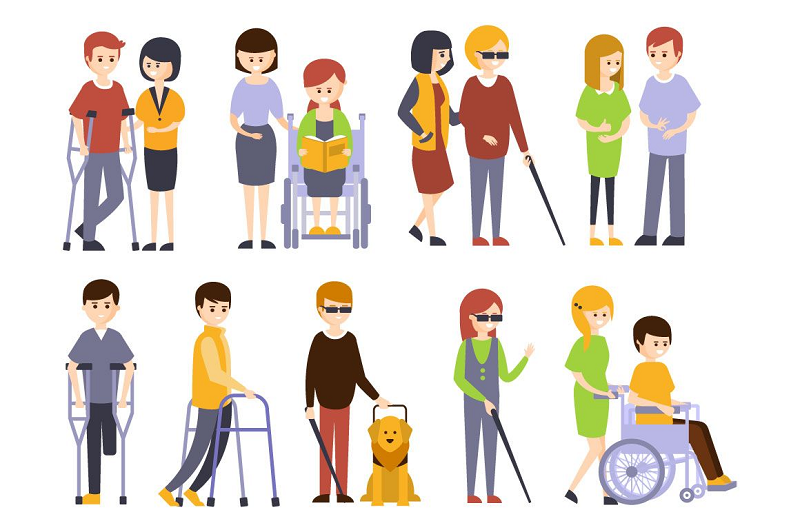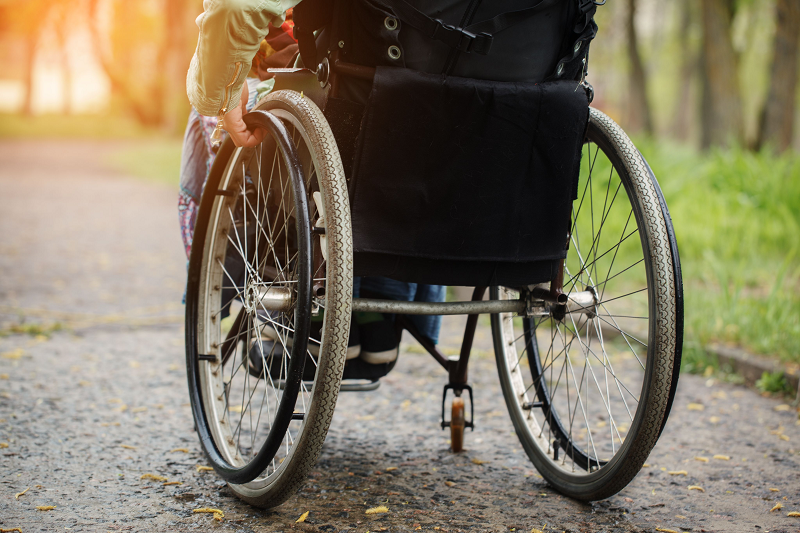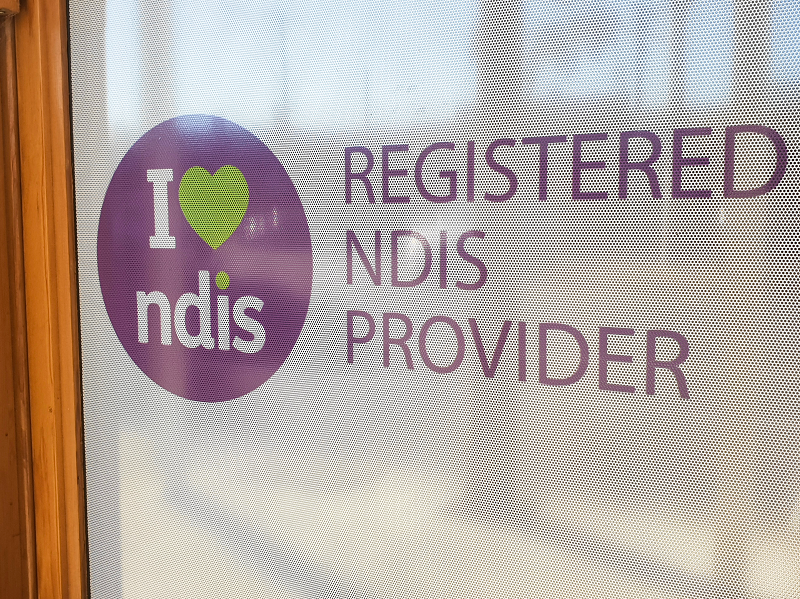Understanding the NDIS: What Disabilities Does The NDIS Cover?

Disability, even if it’s short-term, can be a frustrating and challenging experience for everyone afflicted by it. Without appropriate resources to overcome these obstacles, situations can get even more complicated.
What Exactly Is The Purpose Of The NDIS?
The National Disability Insurance Scheme (NDIS) aims to improve the quality of life for people with disabilities and their families or carers. Their guiding principle is to assist them in reaching their full potential by providing high-quality support services, funding, and equipment. In this way, they have more control over their lives and have better options for the care they receive.
What’s more remarkable is that NDIS funding has no impact on the disability support pension.
What Disabilities Does The NDIS Cover?
Disability disorders ranging from physical to intellectual to psychosocial.These conditions limit a person’s motor, neurological, psychological, and behavioural functions.
The NDIS includes individuals with chronic or persistent illnesses that affect their functional capacities and require further evaluation. Alzheimer’s Disease, Vascular Dementia, and Multiple Sclerosis (MS) are just a few of the conditions that fit into this category due to the confusing symptoms they produce and how they might manifest.
Early intervention services are also available to qualifying individuals with disabilities or children with a developmental delay. Alternatively referred to as ‘early childhood intervention’, it is a program for children under seven.
The NDIS is ever changing and continuously up for review. To stay up to date with the most accurate information and the disabilities included under the NDIS, it is always best to utilise the official NDIS website here.
Defining Disabilities
There are a multitude of disabilities, and each of them impact individuals in different ways. To read more about disability in our previous blogs, check out the following:
Is An Intellectual Disability the Same as A Learning Disability?
How To Live Independantly With Disability
Listed below are examples of various disabilities that may be covered under an NDIS plan.
Physical Disability
This term refers to any physical ailment that significantly impairs one or more fundamental living activities. People who suffer from this condition have a significant or total loss of strength and mobility in the affected body parts. As a result, their capacity to perform everyday activities is constrained. These disabilities can occur due to congenital conditions, genetic abnormalities, accidents, or illnesses.

Examples of physical disability include:
- Cerebral palsy– the most common motor impairment in childhood that affects mobility and posture. Birth trauma or injury are possible causes of cerebral palsy.
- Epilepsy – a brain condition characterised by a brief disturbance in regular brain activity. Convulsions or seizures are the most common symptom of epilepsy.
- Spinal cord injuries – damage to the central nervous system or nerves towards the end of the spinal canal, frequently resulting in chronic changes in strength, sensation, and other bodily functions.
- Blindness – a loss of eyesight that can’t be restored with glasses or contacts.
- Deafness – a hearing condition that impairs a person’s ability to interpret linguistic information without amplification.
Intellectual disability
An Intellectual Disability occurs when a person’s cognitive abilities and skills are impaired, affecting communication, interaction, and self-care. In children, this may manifest has someone who may develop and learn differently, and more slowly.
Examples of causes of Intellectual Disability include; Down Syndrome, Fragile X Syndrome, Prader-Willi Syndrome and Fetal Alcohol Syndrome. Brain injury and stroke can also contribute to the causation of an Intellectual Disability.

Intellectuctual Disability may also occur simultaenously with other disoders such as Autism and Attention Deficit Disorder (ADD).
Psychosocial Disability
Psychosocial Disability refers functional impacts and challenges that someone with a mental health condition may face. The stigma and discrimination that people with Psychosocial Disability people experience are immense. As a result, it impedes their ability to concentrate and participate in certain activities or environments. Others may lack the stamina to complete tasks and interact with people.
Psychosocial Disability may be caused by various mental and behavioural conditions such as Anxiety, Depression, Psychosis, Post Traumatic Stress Disorder, Bipolar Disorder and Schizophrenia.

Are There Any Access Requirements For Receiving NDIS Benefits?
Yes. To be eligible for the NDIS, a person must be an Australian citizen or permanent resident under 65 years of age with a chronic or likely-to-be permanent disability (as defined above).
The easiest way for a person to find out if they meet the access requirements, to find out is to visit the NDIS website or call the local NDIS office.
When And How To Apply For The NDIS Support Services?
Applying for NDIS disability services is made easier by the friendly team of experts at St Jude’s. Our NDIS Support Coordinators can assist clients with completing their NDIS application – which is imperative to them accessing the right supports they need. From filling out the initial application form to coordinating with the appropriate supports, we are here to support all our clients through the process.
However, if a person prefers to do it themselves, they can do so through any of the following channels:
- Contact the NDIS at 1800 800 110 and ask for an access request form.
- Download and fill out the Access Request form and email it to NAT@ndis.gov.au. If you don’t have internet access, you can mail it to GPO Box 700, Canberra, ACT 2601.
- Bring the application form to your local National Disability Insurance Agency (NDIA) office. The NDIA is a government agency that helps run and implement the NDIS.
The access request form demands as much information as possible regarding the applicant’s disability and relevant medical conditions. The applicant will need supporting documentation from their treating specialist and/or general practitioner to support the application.
Having a St Jude’s support coordinator to guide the applicant through this application process will be advantageous, to ensure all elements are completed thoroughly.

The NDIS Support Coordinator: A Critical Success Factor for NDIS Plans
Support coordinators are critical to the success of the NDIS because they assist NDIS participants in making the best use of their plan. They work to strengthen a participant’s capacity to connect with informal, community, and financed services, allowing them to maximise the effectiveness of their NDIS strategy and goals.
The experienced team at St. Jude’s experienced will guide client’s through the process of reclaiming their independence and social inclusion. We have the relevant expertise, experience, and credentials to support clients in ways most beneficial to them. Our work is research based, and operated within the NDIS Commission’s National Guidelines.

More Than Just Medical Interventions
As a result of our long-standing relationships with communities in both Western Australia and Queensland, we are well-versed in the unique problems of each region, which is highly important when offering disability services.
St. Jude’s can provide client’s with the most adaptable and personalised assistance possible, including:
We also provide allied health services to assist with various types of disability. These include; occupational therapy, physiotherapy, speech pathology and psychology, designed to provide physical, emotional, cognitive, and behavioural support for our clients.
For treatment of psychosocial disability, we have a team of wonderful psychosocial recovery coaches.
To read more about the positive impact of psychosocial recovery coaching, have a read of our previous blog here.
At St. Jude’s, our mission is to provide the best level or personalised support and care, and provide options outside of only medical interventions. Our ultimate goals are to facilitate greater independence, capacity and wellbeing for each and every one of our clients.
|
|


